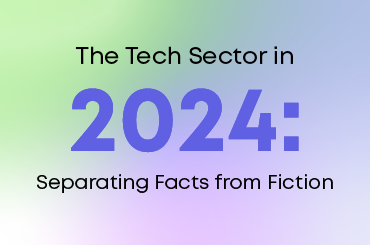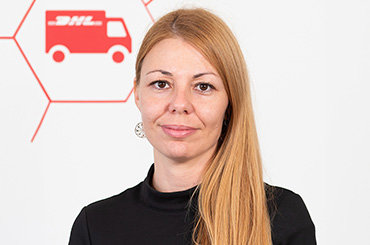Data analysts are becoming more crucial today across industries as businesses rely more on data to improve their decision-making processes.
Data analysts utilize a variety of statistical and analytical techniques, as well as data visualization tools, to identify trends, patterns, and correlations in data. This information gives companies a competitive advantage in understanding everything from consumer behavior and market trends to business performance.
Meet Pavlin Mavrodiev, PhD, Full-stack Data Scientist and lead trainer in the Upskill Data Analyst program! Learn more about the profession of data analysts, real projects and options for career development in the field.
Don’t miss your chance to be at the forefront of the data revolution. Apply for the
Upskill Data Analyst program until March 10.

What was your first data-related job, and how has your career path evolved?
My first job involving data was in microelectronics tackled the challenge of efficiently processing large text files containing structured information from test machines, often reaching several tens of gigabytes in size.
It was here that I honed my skills in using essential Linux commands.
Starting from this early experience is no coincidence. The ability to swiftly and effectively handle vast structured datasets is invaluable for a data analyst. Tasks such as identifying duplicate records, detecting missing columns, or rectifying wrongly formatted dates can be incredibly time-consuming, especially with files scaling into hundreds of terabytes. Hence, I strongly advocate that every analyst possesses proficiency in at least one low-level text editor, such as Emacs, Vim, Notepad++, or Atom.
Subsequently, my journey led me through roles in data engineering, where the mastery of data manipulation remained essential, and then into data science. Currently, I am a manager overseeing junior data scientists and I can't wait to share my accumulated experience with all the people who will join the
Upskill Data Analyst program.
Share examples of projects you are working on?
One of my most recent and interesting projects occurred while working for a prominent supermarket chain. Our objective was to analyze customer purchasing behavior to predict when they would deplete their stock of various products. From the list of products forecasted to run low, we curated a selection and seamlessly integrated them into the customer's basket via the supermarket's mobile app. This "smart basket" initiative quickly gained widespread popularity.
Another noteworthy project within the same role focused on forecasting the potential profitability of newly established stores based on their locations. The project was complex because it combined diverse datasets - internal financial reports, population statistics broken down by region, information on passenger flow from public transport, the presence of competitors and their geographical location, etc. Again, being able to handle data effectively proved to be hugely important to the success of this project, far more than the model itself.
What projects are the focus of the company you work for? Who are your customers? What do you use Data Analysis for?
The company I work for is a bank and our primary focus lies in understanding the diverse interests of our customers and aligning them with suitable products. However, the challenge comes since the definition of a “customer” in a bank is much more complex than in a supermarket.
For example, a person may have his own account in the bank, the same person may have a company with a company account also in the bank, and he may have a mortgage with his partner in a shared account, etc. All of these different touchpoints are technically different customers, even though they are superficially the same person. The requirements of a person's business may differ from their personal needs, necessitating tailored corporate products alongside individual financial solutions such as pension plans. Furthermore, factors like optimizing mortgage arrangements add complexity to the equation.
That is why the projects we work on require a very good understanding of the essence of the data we use and what exactly it means. Understanding the business, as I indicated above, is critical for any data-related activity. This is just one among a lot of important lessons that we'll share with the students in Upskill Data Analyst program.
What are your biggest achievements in data analytics? What are you most proud of?
I am most proud of being able to develop a discipline of self-restraint and curiosity. Let me explain.
The more technical skills one acquires in data analysis, the more one begins to be tempted by the mantra that "the data speaks for itself." And it is a temptation, because with sufficiently advanced methods of analysis and modeling, some insights can always be extracted without investing time in understanding the subtleties behind the business problem or behind the data itself. And quick insights at first glance speak well for the analyst - he works quickly and efficiently.
However, based on my experience, it's evident that adopting such an approach to data analysis is not conducive to reliable career advancement. I have countless examples of how refraining from immediate coding leads to the avoidance of many mistakes and time saved in the long run.
My advice to anyone in this profession is to invest time literally in looking at the raw data, in deeply understanding how it was collected, what the business problem is, what question we are trying to answer with this data, think about if this is even possible, check for logical errors in the data (for example, customers over 200 years old, or purchases with a timestamp in the future) and only then start modeling, generating dashboards or all kinds of reports.
Often such an exercise leads to the redefinition of the business problem itself, which is a much more valuable contribution to the business and leads to faster growth in the organization than the quick generation of a report.
And here comes the curiosity. Data analysts should not be people who are just interested in the "dry" numbers. On the contrary, they should develop curiosity about the business they are in, because only then will they have the interest to "dig" and really understand the data they are working with.
What topics will you teach in Upskill Data Analyst and why did you choose them?
I will teach mostly machine learning. I think classical machine learning has a lot of applications for data analysts, but it seems a bit outdated in today's age of big language models and generative AI. In fact, many classical methods, such as regressions and trees are more useful in industry and have a wider application. I aim to highlight this particular aspect, as I believe it will greatly benefit the students.
Learn more about the curriculum of the
Upskill Data Analyst Program and apply by March 10.







